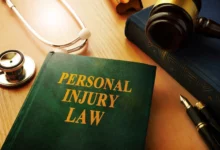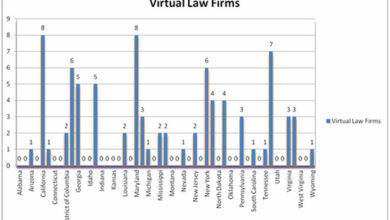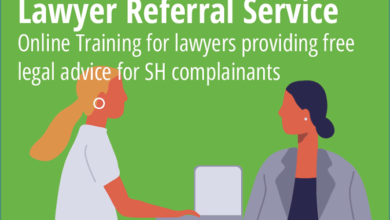Why You Need a Personal Injury Lawyer
Accidents can happen to anyone, at any time, and in any place. Whether it’s a car crash, a slip and fall incident, or a workplace injury, accidents can have a devastating impact on your life. In addition to physical pain and emotional distress, you may also face financial burdens such as medical bills, lost wages, and property damage. When faced with such a situation, hiring a personal injury lawyer can be your best course of action.
1. Expertise and Knowledge
Personal injury law is complex and ever-changing. It requires a deep understanding of legal principles, statutes, and court procedures. A personal injury lawyer specializes in this area of law and possesses the necessary expertise and knowledge to navigate through the legal system on your behalf.
2. Evaluation of Your Case
Before pursuing a personal injury claim, it’s important to assess the strength of your case. A personal injury lawyer can evaluate the circumstances surrounding your accident, gather evidence, and determine the viability of your claim. They will consider factors such as negligence, liability, and the extent of your injuries to provide an accurate assessment.
3. Gathering Evidence
Building a strong case requires gathering evidence to support your claim. A personal injury lawyer has the resources and experience to collect crucial evidence such as accident reports, witness statements, medical records, and expert opinions. They know what evidence is relevant and how to obtain it, ensuring a solid foundation for your case.
4. Negotiating with Insurance Companies
Insurance companies are notorious for offering low settlements and employing tactics to minimize their liability. Having a personal injury lawyer by your side levels the playing field. They can negotiate with insurance companies on your behalf and strive to secure a fair settlement that covers all your damages, including medical expenses, lost wages, and pain and suffering.
5. Maximizing Compensation
Personal injury lawyers have a deep understanding of the types of damages you may be entitled to. They can help you identify all the potential avenues for compensation, including economic damages (such as medical expenses and lost wages) and non-economic damages (such as pain and suffering). By maximizing your compensation, they ensure that you receive the financial support you need to recover and move forward.
6. Courtroom Representation
If your case goes to trial, having a personal injury lawyer by your side is crucial. They will advocate for your rights in the courtroom, present evidence, cross-examine witnesses, and argue your case persuasively. Their courtroom experience and expertise can significantly increase your chances of success.
7. Contingency Fee Arrangement
Many personal injury lawyers work on a contingency fee basis. This means that they only get paid if they win your case. This arrangement allows individuals with limited financial resources to access quality legal representation without upfront costs. It also aligns the lawyer’s interests with yours, as they have a strong incentive to obtain the maximum compensation possible.
Key Statistics
Here are some eye-opening statistics that highlight the importance of hiring a personal injury lawyer:
- According to the National Highway Traffic Safety Administration, there were 36,096 fatal motor vehicle crashes in the United States in 2019.
- The Centers for Disease Control and Prevention reports that unintentional falls are the leading cause of non-fatal injuries in the United States, with over 8 million emergency room visits each year.
- Workplace injuries cost an estimated $171 billion in the United States in 2019, according to the National Safety Council.
- A study published in the Journal of the American Medical Association found that medical malpractice is the third leading cause of death in the United States, resulting in over 250,000 deaths every year.
Case Study: Car Accident
Consider the following case study to better understand the impact a personal injury lawyer can have:
Sarah was driving home from work when she was rear-ended by a distracted driver. She suffered severe whiplash, a concussion, and emotional distress. Sarah was overwhelmed by medical bills, unable to work, and unsure of how to navigate the legal process.
After seeking the advice of a personal injury lawyer, Sarah was able to file a claim against the at-fault driver’s insurance company. Her lawyer gathered evidence, negotiated with the insurance company, and ultimately secured a settlement that covered her medical expenses, lost wages, and pain and suffering. Without the assistance of a personal injury lawyer, Sarah would have been left to deal with the aftermath of the accident on her own.
Conclusion
When you suffer an injury due to someone else’s negligence, hiring a personal injury lawyer is essential. They possess the expertise, knowledge, and resources to navigate the legal system and fight for your rights. From evaluating your case to negotiating with insurance companies and representing you in court, a personal injury lawyer will ensure that you receive the compensation you deserve. Don’t face the aftermath of an accident alone – seek the assistance of a personal injury lawyer to protect your interests.
FAQs After The Conclusion
1. How much does hiring a personal injury lawyer cost?
The cost of hiring a personal injury lawyer varies depending on the complexity of the case and the lawyer’s experience. Many personal injury lawyers work on a contingency fee basis, meaning they only receive payment if they win your case. Typically, the contingency fee ranges from 33% to 40% of the settlement amount. It’s important to discuss the fee structure with your lawyer before hiring them.
2. How long does it take to settle a personal injury claim?
The duration of a personal injury claim varies depending on several factors, including the complexity of the case, the severity of the injuries, and the willingness of the insurance company to negotiate. Some cases can be settled within a few months, while others may take years to reach a resolution. It’s important to have realistic expectations and be patient throughout the process.
3. What types of damages can I claim in a personal injury case?
In a personal injury case, you may be entitled to various types of damages, including:
- Medical expenses
- Lost wages
- Pain and suffering
- Emotional distress
- Property damage
- Loss of consortium
Consult with a personal injury lawyer to determine which damages apply to your specific case.
4. Can I handle a personal injury claim on my own?
While it is possible to handle a personal injury claim on your own, it is not recommended. Personal injury law is complex and insurance companies have teams of lawyers who will try to minimize your claim. Without the expertise and resources of a personal injury lawyer, you may not receive the full compensation you deserve. It’s best to seek professional legal representation.
5. How do I choose the right personal injury lawyer for my case?
Choosing the right personal injury lawyer is crucial for the success of your case. Here are some factors to consider:
- Experience and expertise in personal injury law
- Track record of successful settlements and verdicts
- Good communication skills
- Availability and responsiveness
- Transparent fee structure
It’s important to schedule a consultation with potential lawyers to discuss your case and assess whether they are the right fit for you.
Summary
When you’re faced with a personal injury, hiring a personal injury lawyer is crucial. They have the expertise, knowledge, and resources to evaluate your case, gather evidence, negotiate with insurance companies, and represent you in court. By maximizing your compensation, they ensure that you receive the financial support you need to recover and move forward. Don’t underestimate the importance of legal representation – seek the assistance of a personal injury lawyer to protect your rights.









